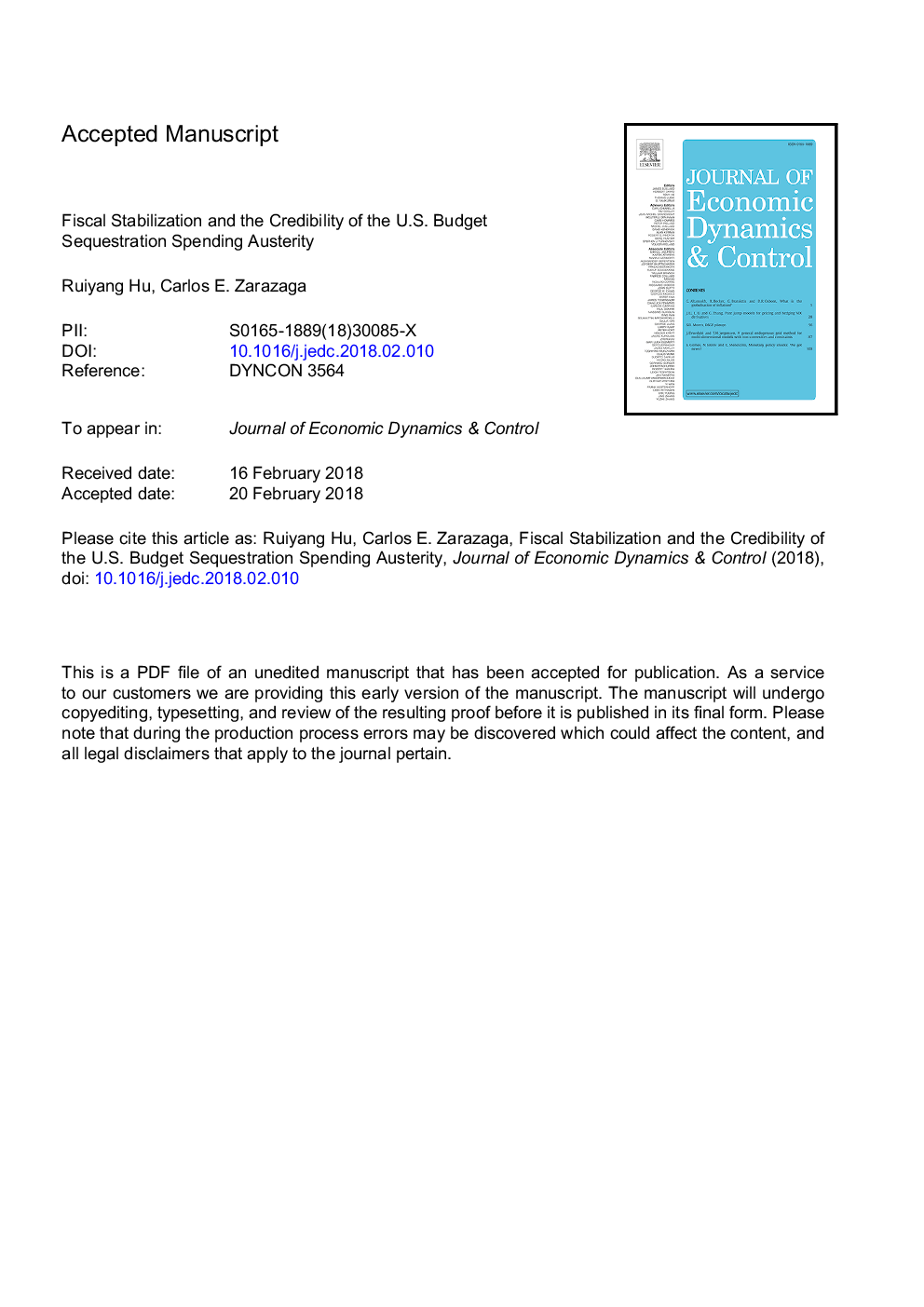| Article ID | Journal | Published Year | Pages | File Type |
|---|---|---|---|---|
| 7358426 | Journal of Economic Dynamics and Control | 2018 | 35 Pages |
Abstract
The credibility of fiscal stabilization programs plays a critical role in their macroeconomic outcomes, yet formal assessments of that credibility are typically missing from analyses of the economic consequences and effectiveness of those programs. This paper remedies that omission for the most recent fiscal consolidation attempt in the U.S.: the 2011-mandated budget sequestration spending cuts in discretionary spending slated to begin in 2013. The credibility of those cuts is assessed with a novel methodology that draws on the “event-study” and Business Cycle Accounting traditions. The paper finds that the fiscal austerity program had little, if any, credibility around the time it was scheduled to become effective and that studies that don't take this lack of credibility into account might overestimate the quantitative impact of the budget sequestration on key macroeconomic variables by a factor of three or more. These findings expose the dangers of extrapolating policy lessons extracted from the budget sequestration experience to other fiscal stabilization programs, without gauging first their credibility. Properly adapted and extended, the methodology the paper developed with that purpose could prove useful for the systematic assessment of the credibility of other fiscal stabilization programs, of the impact of their credibility on aggregate outcomes and, ultimately, of the chances of those programs to successfully eliminate structural fiscal imbalances.
Related Topics
Physical Sciences and Engineering
Mathematics
Control and Optimization
Authors
Ruiyang Hu, Carlos E. Zarazaga,
